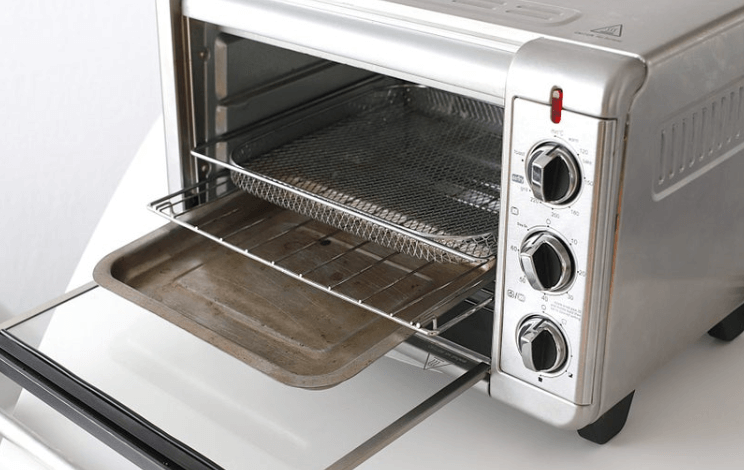The Essential Guide to Selecting the Right Benchtop Oven for Your Lab

Benchtop ovens are indispensable tools in laboratories where precise temperature control and uniform heating are essential. They are used for various applications such as drying, curing, sterilizing, and aging. Whether you are working with aggregates, asphalt, concrete, soils, or general lab applications, having the right benchtop oven can significantly impact the quality and reliability of your results.
Factors to Consider When Choosing a Benchtop Oven:
- Temperature Range: Ensure that the oven’s temperature range aligns with your specific application requirements.
- Heating Uniformity: Look for ovens with features that provide uniform temperature distribution throughout the chamber.
- Size and Capacity: Consider the size and capacity of the oven based on the volume of samples you need to process.
- Control and Monitoring: Opt for ovens with precise temperature control and advanced monitoring capabilities for enhanced accuracy.
- Safety Features: Prioritize ovens equipped with safety features such as overtemperature protection and alarms.
- Energy Efficiency: Choose energy-efficient models to minimize operational costs and environmental impact.
Types of Benchtop Ovens:
- Gravity Convection Ovens: Ideal for general drying and sterilization applications.
- Mechanical Convection Ovens: Offer enhanced airflow and temperature uniformity, suitable for more demanding heating processes.
- Vacuum Ovens: Designed for sensitive materials that require low-pressure environments, such as drying heat-sensitive samples.
Popular Brands and Models:
- Insert popular brands and models with brief descriptions
Maintenance and Care Tips:
- Regularly clean the interior and exterior of the oven to prevent contamination and maintain performance.
- Follow manufacturer’s guidelines for calibration and maintenance procedures.
- Inspect and replace worn-out components such as gaskets and heating elements as needed.
Additional Considerations for Benchtop Oven Selection:
- Application Specific Features: Some benchtop ovens come with specialized features tailored to specific applications. For example, inert gas purging capabilities may be essential for processes involving sensitive materials.
- Compatibility with Accessories: Evaluate whether the oven is compatible with additional accessories such as shelves, racks, and trays, which can enhance versatility and productivity.
- Regulatory Compliance: Ensure that the benchtop oven meets relevant industry standards and regulatory requirements, especially if you are working in fields such as pharmaceuticals or food testing.
- Warranty and Support: Look for models backed by comprehensive warranties and reliable customer support to address any issues or concerns that may arise during the lifespan of the oven.
- Budget Considerations: While it’s important to prioritize quality and performance, it’s also essential to consider your budget constraints and find a balance between cost and value.
Tips for Maximizing the Performance of Your Benchtop Oven:
- Preheat the oven to the desired temperature before introducing samples to ensure consistent results.
- Avoid overloading the oven, as overcrowding can compromise airflow and heating uniformity.
- Monitor temperature and other parameters regularly using built-in controls or external monitoring devices.
- Implement regular calibration and validation procedures to verify the accuracy and reliability of temperature settings.
- Store the oven in a clean and well-ventilated area away from sources of contamination or excessive heat.
Read also: Framing the Future: Sleek Designs for Your Screens
Future Trends in Benchtop Oven Technology:
- Integration of IoT and Cloud Connectivity: Expect to see benchtop ovens equipped with IoT capabilities for remote monitoring and control, as well as cloud-based data storage and analysis.
- Advances in Energy Efficiency: Manufacturers are continually exploring ways to improve the energy efficiency of benchtop ovens through innovative heating elements, insulation materials, and control algorithms.
- Customization and Personalization: With increasing demand for tailored solutions, anticipate the emergence of benchtop ovens that can be customized to meet specific user requirements, such as size, temperature range, and features.
FAQs About Benchtop Ovens:
Q: What is the difference between gravity convection and mechanical convection ovens?
A: Gravity convection ovens rely on natural airflow, while mechanical convection ovens use fans for more uniform heat distribution.
Q: Can benchtop ovens be used for heat treatment processes?
A: Yes, benchtop ovens are commonly used for heat treatment processes such as annealing, tempering, and stress relieving.
Q: How do I determine the right size of the benchtop oven for my lab?
A: Consider the volume and size of your samples, as well as the available space in your laboratory, when selecting the size of the benchtop oven.
Conclusion
In conclusion, selecting the right benchtop oven for your lab is a critical decision that requires careful consideration of various factors. By understanding your specific application requirements and evaluating the features and capabilities certifiedmtp.com of different models, you can ensure that you invest in a benchtop oven that meets your needs and exceeds your expectations.




